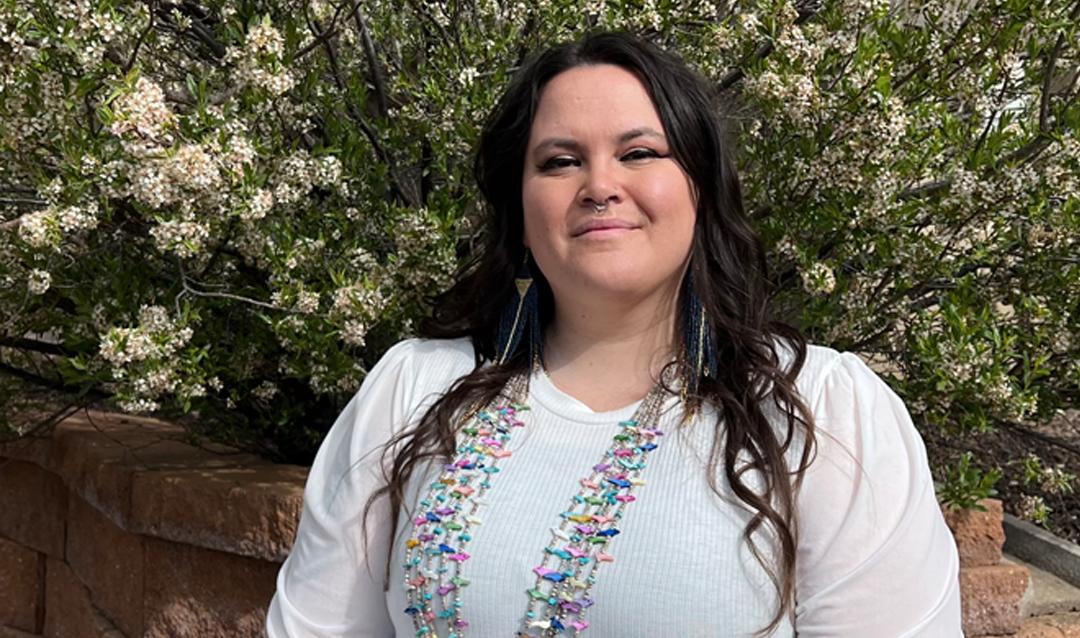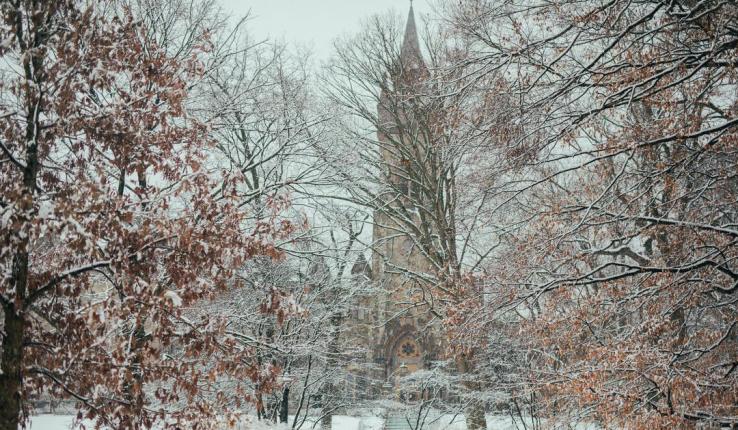Carly Camplain, a scholar of Indigenous studies and incarceration, and a member of the Comanche Nation of Oklahoma, joined the College of Health (COH) in Fall 2023 as an assistant professor of Indigenous health law and justice.
Having recently completed the Ph.D. program at Northern Arizona University, Camplain has already made an impact at the College’s Institute for Indigenous Studies (IIS). She works at the intersection of public health, law and Native Nation building and sovereignty, with the aim of helping tribes develop systems that work for them.
“I work with both Indigenous and incarcerated individuals separately on health-related issues, but the vast majority of my work is at the intersection of people who are Indigenous and people who are incarcerated,” said Camplain.
“My big move forward is working with tribal jails and healthcare while incarcerated in tribal jails,” she continued. Similar to county jails as locally run, short-term holding facilities, tribal jails are operated by tribal authorities or the Bureau of Indian Affairs and are located in Indian country, encompassing lands held in trust for tribes or their members.
Last fall, Camplain was selected to attend Promoting Indigenous Research Leadership (PIRL), a prestigious conference bringing together 15 emerging Indigenous and non-Native researchers working with Indigenous communities and Native nations. Presented by the Center for American Indian and Rural Health Equity (CAIRHE) at Montana State University, the conference took place Nov. 13-15, 2023 at Arizona State University.
PIRL offered not only career development, but was specifically designed to foster a sense of community for the participants, and to provide support to help attendees become better partners with Indigenous communities within research. Program officers from the National Institutes of Health (NIH), an event partner, were on hand as well, to provide assistance with applying for funding opportunities.
Camplain described the conference as emotional, moving and informational. She said she particularly appreciated mentorship from peers in addition to experts in the field.
Her key takeaways included important life lessons, such as combatting imposter syndrome and being true to oneself, and recognizing that it’s important to forge one’s own path, rather than following a more traditional one. Camplain shared that it can be common to follow an advisor’s path, or in her case, the example of her identical twin sister’s successful path as an assistant professor of epidemiology at Indiana University. She collaborates with her sister, but with a law degree and a degree in interdisciplinary health with a focus on health equity, Camplain has her own area of expertise. Camplain reflected that while their paths can intersect and overlap, they do not have to be exactly the same.
IIS Director and COH faculty member Sean M. Daley said, “Lehigh is exceptionally lucky to have Camplain.” She has contributed significantly since joining Lehigh—applying for large grants from the National Institutes of Health, developing courses and creating partnerships with faculty and communities that are new to Lehigh.
“Statistically, Natives are the least represented group in higher education,” said Daley. Camplain has both a Juris Doctor degree and a Ph.D., which is rare, and especially as she is an Indigenous woman, “This is hugely significant,” he said. “To have a person like that at Lehigh and at PIRL is a big deal for Indigenous people, for women, and for Lehigh.”
Camplain is part of an effort to recruit Native faculty to Lehigh, to “grow our focus on Indigenous research, particularly Indigenous research led and orchestrated by Indigenous faculty,” Daley said.
According to College of Health Dean Beth Dolan, working directly with impacted communities, such as Indigenous peoples, to conduct research and to promote health equity is central to the College of Health’s mission.
“This is particularly important in Pennsylvania, where there are no federally recognized tribes, and also on a broader scale within the United States, as many people around the country do not realize that Native people still exist and are thriving,” she said.
Camplain continues to address this knowledge gap through her teaching about Indigenous populations, and to assist in growing both the College of Health and the Institute of Indigenous Studies.
Daley anticipates that Camplain will contribute largely to the national dialogue. “I see her being able to take leadership roles nationally and really address these issues that we’ve been dealing with for a long time,” he said, “and make improvements in the life of Native individuals and Native communities.”
Story by Katie Jones





